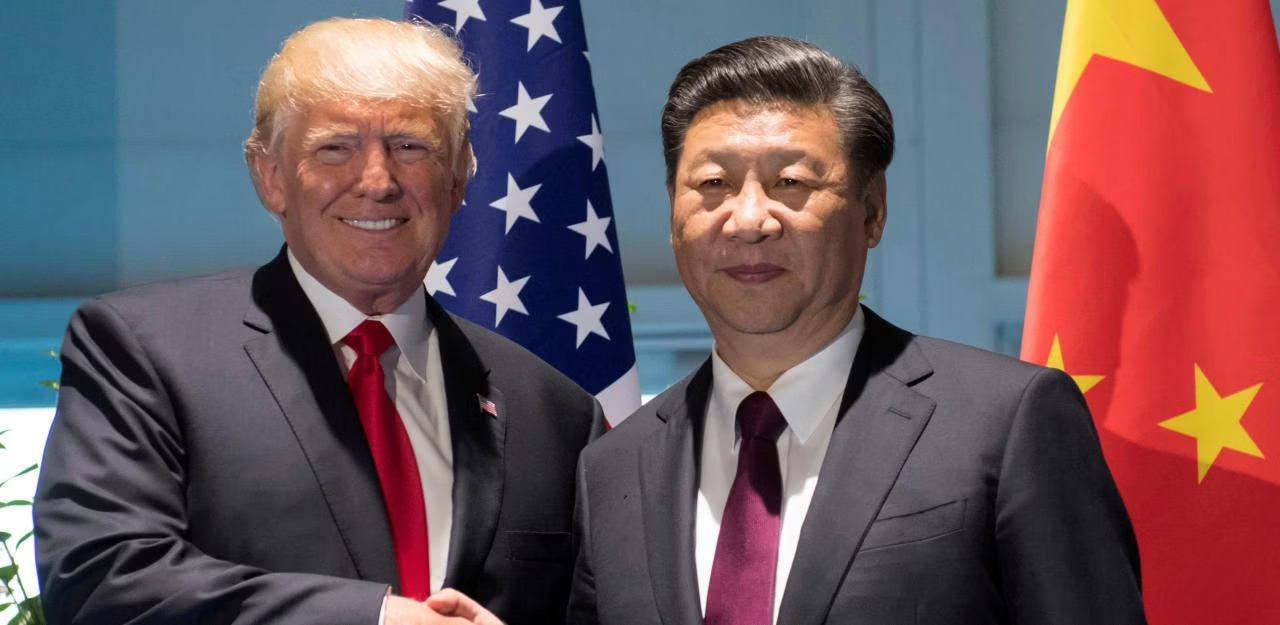
U.S. President Donald Trump announced on social media that he would impose an additional 100% tariff on imports from China starting next month. In the same post, President Trump declared that the U.S. would also put export controls on critical software.
This threat comes in direct retaliation to Beijing’s recent action this week to tighten its rules for exports of rare earths and related technologies, materials critical for advanced technology manufacturing. President Trump accused China of “becoming very hostile” and attempting to hold the world “captive” by restricting access to these materials. Although he later attempted to walk back the suggestion that he had canceled a planned meeting with Chinese President Xi Jinping later this month, he stated he did not know “that we’re going to have it,” while confirming, “I’m going to be there regardless.”
Financial markets reacted severely to President Trump’s remarks. The S&P 500 closed down 2.7%, marking its steepest fall since April, due to worries over the rising trade tensions between the world’s two largest economies. China dominates the production of rare earths and certain other key materials, which are essential components in everything from smartphones and electric car motors to defense technology. The last time Beijing tightened export controls—after President Trump raised tariffs on Chinese goods earlier this year—many U.S. firms that rely on the materials, including carmaker Ford, had to temporarily pause production due to supply shortages.
China’s Strategic Countermeasures
The expansion of rare earth export restrictions is only one part of China’s retaliation. Beijing has also opened a monopoly investigation into the U.S. tech firm Qualcomm, a move that could potentially stall its acquisition of another chipmaker. This is significant because a substantial portion of Qualcomm’s business is concentrated in China. Additionally, Beijing has announced plans to charge new port fees to ships with ties to the U.S., including those owned or operated by U.S. firms. President Trump reacted to this escalation on social media, writing that “Some very strange things are happening in China! They are becoming very hostile.”
The U.S. and China had been operating under a fragile trade détente since May, when both sides agreed to drop the previous round of triple-digit tariffs that had nearly stopped trade between the two countries. The remaining U.S. tariffs on Chinese goods still face an added 30% levy, with U.S. goods entering China facing a new 10% tariff. Officials from both sides have been holding a series of talks on matters including TikTok, agricultural purchases, and the trade of advanced technology like semiconductors, with the leaders expected to meet again this month at a summit in South Korea.
Expert Analysis of the Escalation
Trade expert Jonathan Czin, a fellow at the Brookings Institution, believes President Xi’s recent actions were a calculated bid to gain leverage ahead of the upcoming talks, noting that the new rare earths directive does not take effect immediately. “He’s looking for ways to seize the initiative,” Czin said, adding that the Trump administration is now forced “to play a game of whack-a-mole.” Czin does not believe China fears U.S. retaliation, stating that China concluded from the previous cycle of tariff escalation followed by de-escalation that the Chinese side “had a higher pain threshold.” He concluded, “From their perspective, the Trump administration blinked.”
China’s previous negotiating demands have focused on loosening U.S. restrictions on semiconductors and securing more stable tariff policies to ensure its businesses can sell more easily into the U.S. Gracelin Baskaran, director of the Critical Minerals Security Program at the Center for Strategic and International Studies, noted that the new export rules are particularly serious because they explicitly target overseas defense manufacturers. “Nothing makes America move like targeting our defence industry,” she said. Baskaran believes the U.S. will have “to negotiate because we have limited options” in the face of rising geopolitical tension. She added that while a Trump-Xi meeting looks unlikely now, talks are likely “imminent,” especially since China’s new rules do not take full effect until December.
What The Author Thinks
China’s decision to formally restrict the export of rare earth technology and materials is a calculated and potent form of economic statecraft, designed to directly counter U.S. semiconductor export controls. By leveraging its near-monopoly on processing and magnet-making know-how, Beijing is demonstrating that it can inflict equivalent strategic pain on U.S. defense and electronics manufacturers, making these materials the ultimate bargaining chip in upcoming trade negotiations. This move is a clear signal that the geopolitical competition has fully expanded from advanced microchips to the foundational raw materials of the modern economy.
Featured image credit: Heute
For more stories like it, click the +Follow button at the top of this page to follow us.
